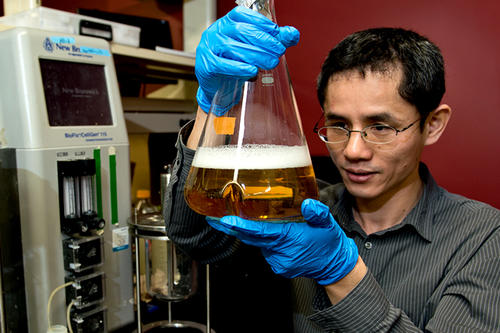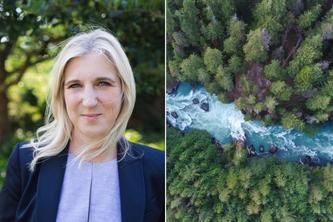
The common plastic bag, notorious for choking sea birds and littering the environment, may soon give way to a new green material.
A rubbery, biodegradable polyester, made from glucose and invented by U of M researchers Kechun Zhang, Frank Bates, and Marc Hillmyer, is the first economically viable product of its kind. It could replace petroleum-based plastics, rubber, and other materials that persist in, and damage, the environment. The new materials could also be used for arterial stents, chewing gum, and films laid over agricultural fields to protect them from freezing, Zhang says.
The researchers genetically engineered bacteria to make enzymes that turn glucose into the building block of the polyester; a remarkably efficient 40 percent of the glucose was converted. And unlike the case with some proposed renewable energy sources, glucose can be obtained without clearing more land for farms, and production of the polyester can be easily scaled up.
“Glucose is abundant, and [using it] doesn’t generate pressure on the environment,” Zhang says. “We make it possible to create environmentally friendly products without raising the cost. It’s sustainable and green.” The researchers are working to commercialize the technology.
Photo: Kechung Zhang in his laboratory with a flask of bacterial cells.
- Categories:
- Science and Technology





